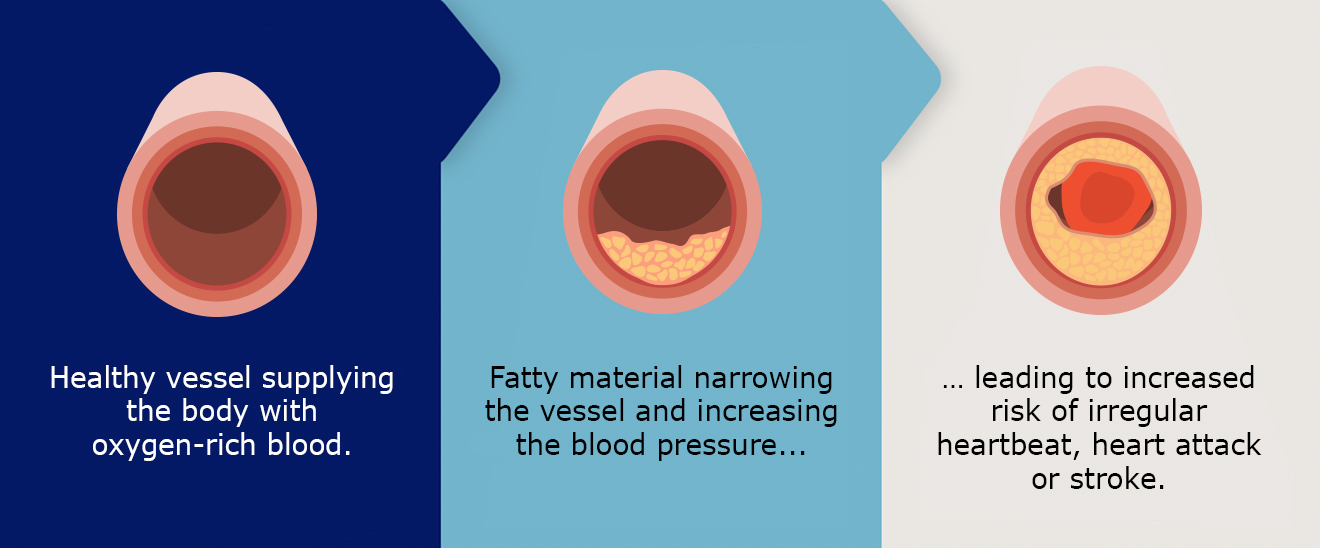
Type 2 diabetes – what's going on in your body?
Understanding the connection between insulin, blood sugar and maintaining normal levels is important for controlling type 2 diabetes.
If you are living with type 2 diabetes, your doctor has probably asked you to make healthy lifestyle choices to help lower your risk of cardiovascular disease—and rightly so! We have previously discussed the connection between type 2 diabetes and heart disease, and this article explains that having type 2 diabetes increases your risk of stroke or heart attack by 2-3 times compared with someone without type 2 diabetes.1,2
Wondering how to start a conversation with your doctor?
Here's a guide to help you have a good conversation with your healthcare provider about the current state of your type 2 diabetes with regards to cardiovascular risks.
Watch the video below to discover the importance of making lifestyle changes to support your cardiovascular health. In the video, Jean shares her experiences of having a stroke following a diagnosis of type 2 diabetes.
To find out more, read on.
Let’s start with a recap on terminology: cardio means related to the heart, vascular means related to the blood vessels.
The medical term for a stroke is a cerebrovascular accident. Cerebro means related to the brain and we know that vascular means related to the blood vessels. In this blog post, we want to explain why people with type 2 diabetes are at increased risk of suffering a stroke and what can be done to help prevent it from happening, including the role that your diabetes medicine could play.
Although your brain is about 2% of your body weight, its intense activity means that it consumes about 20% of the oxygen that enters your body.
Oxygen reaches the brain through the blood, so to ensure normal functioning of the brain, it’s important that its blood supply remains steady.
A stroke happens when the blood supply to part of your brain is suddenly interrupted, starving the brain of oxygen and resulting in damage to brain tissue. Most strokes happen because a blood clot blocks a blood vessel in the brain or neck.
A stroke can have a significant effect on physical and mental health—it can cause movement problems, pain, numbness, and problems with thinking, remembering or speaking. Some people also experience emotional problems, such as depression, after a stroke.
Unfortunately, when people with diabetes have a stroke, they are at an increased risk of dying or being left with a long-term disability, versus someone without diabetes.2,8
Our blog post on heart disease explains that when there is damage to blood vessels, fatty material (sometimes referred to as ‘plaque’) can build up and obstruct the blood flow in a process known as atherosclerosis. Atherosclerosis can build up for many years without you knowing—it is a silent disease, and a stroke can happen suddenly, with no warning.
Uncontrolled blood sugar levels in people with diabetes damage the walls of the blood vessels and may speed up the process of atherosclerosis. People with diabetes also tend to have high levels of the types of fats in their blood that get turned into plaques.
High levels of sugar in the blood also make blood more likely to stick together to form clots. When a clot reaches the brain, it can lead to a stroke.

Some risk factors for stroke can be kept in check by making your lifestyle as healthy as possible. Here are some things that you can do:
You can read more about lifestyle changes promoting cardiovascular health in this blog post.
You might already know about medicines that work to reduce certain risk factors for cardiovascular diseases, like medicines that reduce cholesterol or high blood pressure. If you haven’t had your cholesterol or blood pressure checked in a while, why not make a note to ask your doctor if it’s worth checking that they are under control?
As someone with type 2 diabetes, even if your diabetes and all of your other risk factors for cardiovascular disease are well-controlled, you may still, unfortunately, have a higher risk of developing cardiovascular disease than the general population. Only 6% of people with type 2 diabetes are thought to be managing this risk well.16
Talk to your diabetes doctor to ensure you are on the right treatment to help you manage your risks.
Here’s a guide to help you have a good conversation with your healthcare provider about the current state of your type 2 diabetes with regards to cardiovascular risks.
This is general disease awareness and should not be understood as medical advice. If you have any questions or concerns, you should contact your healthcare professional.

